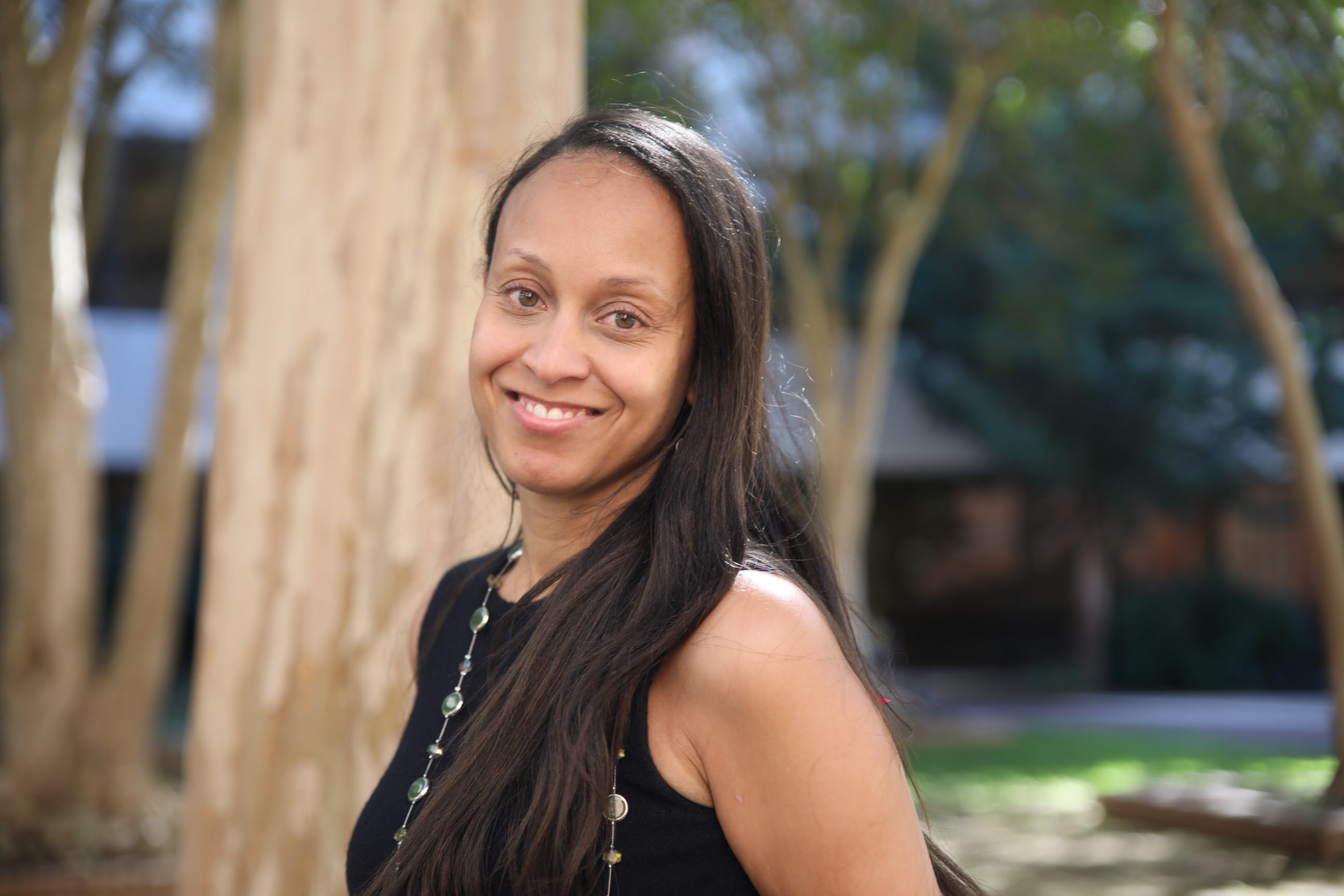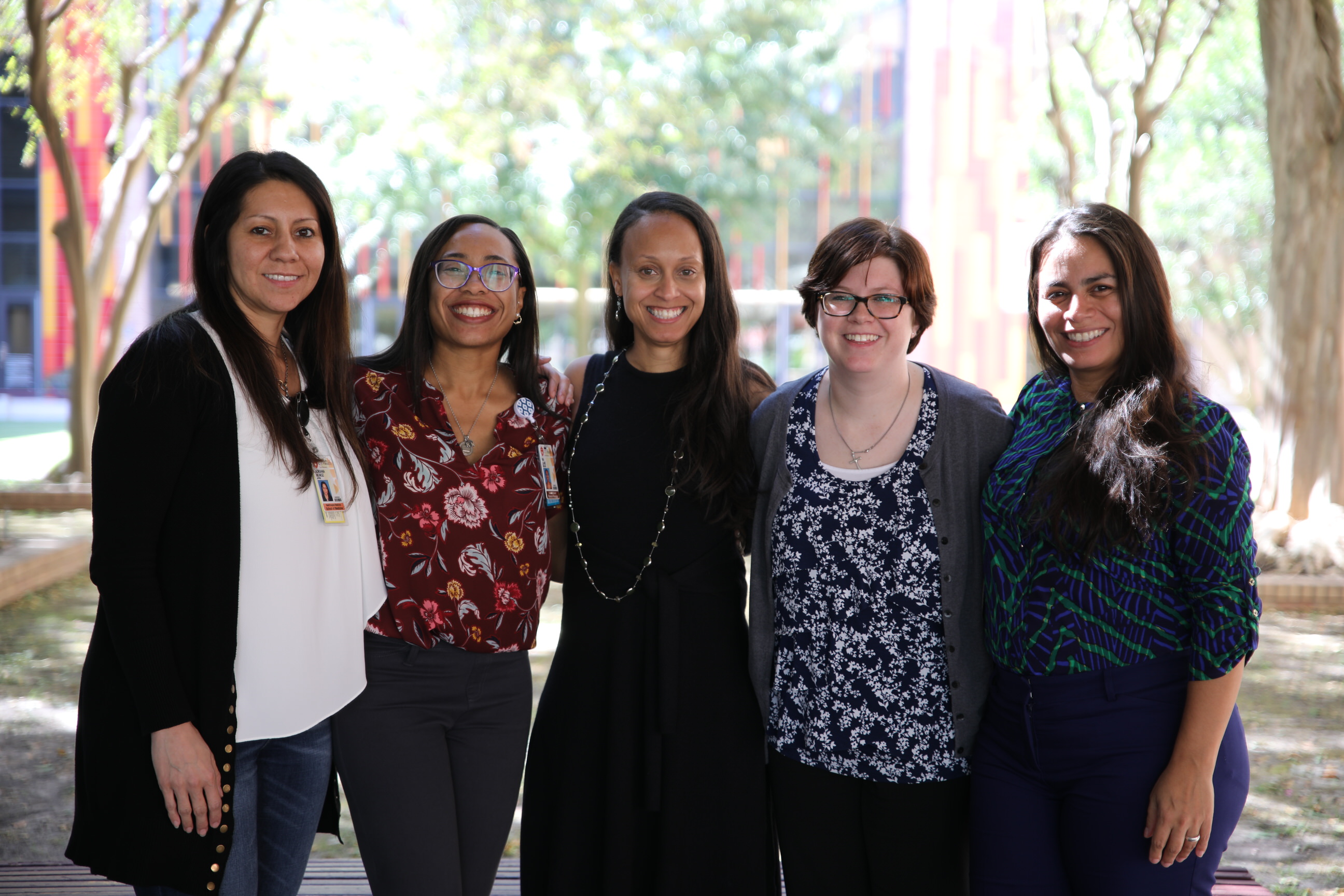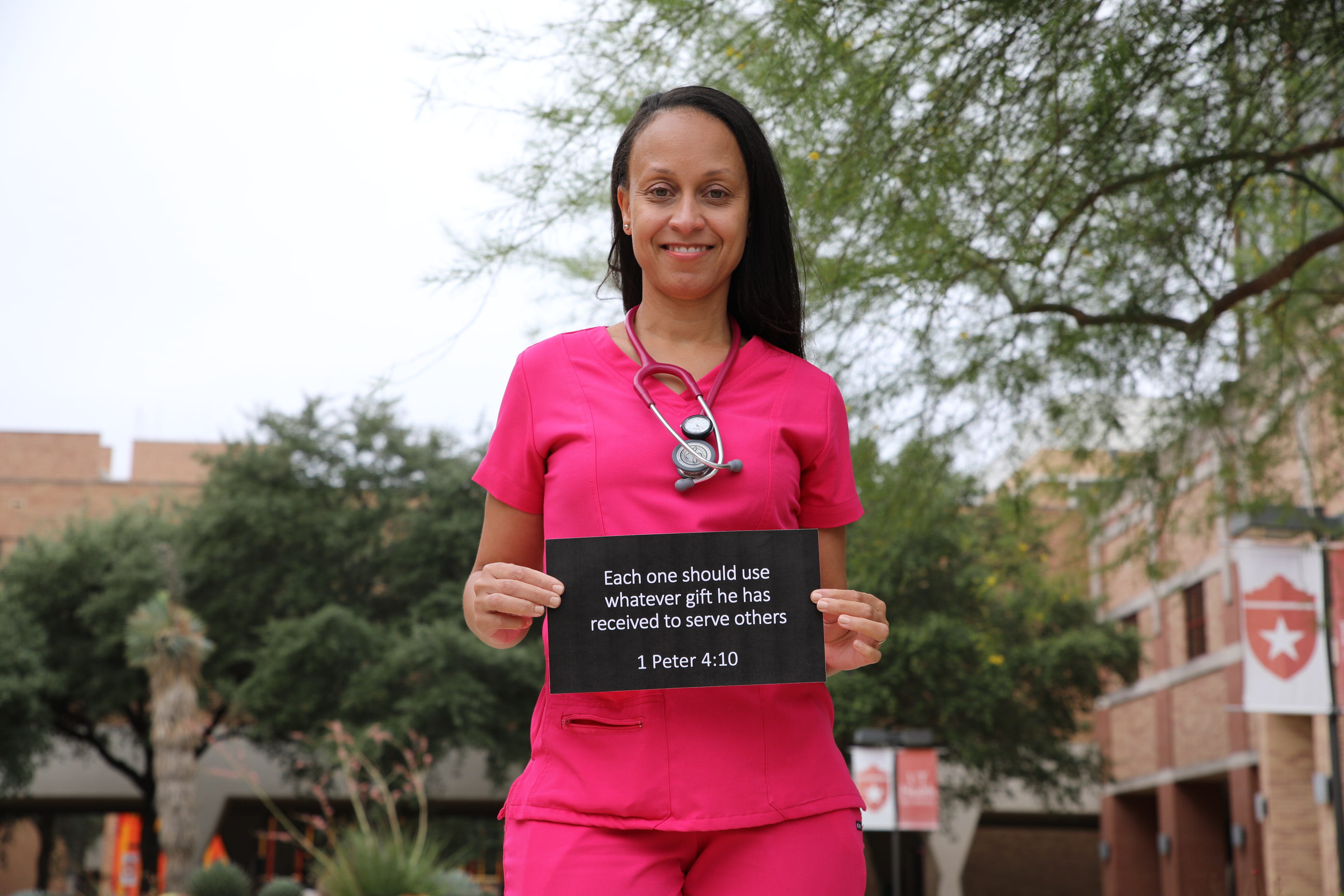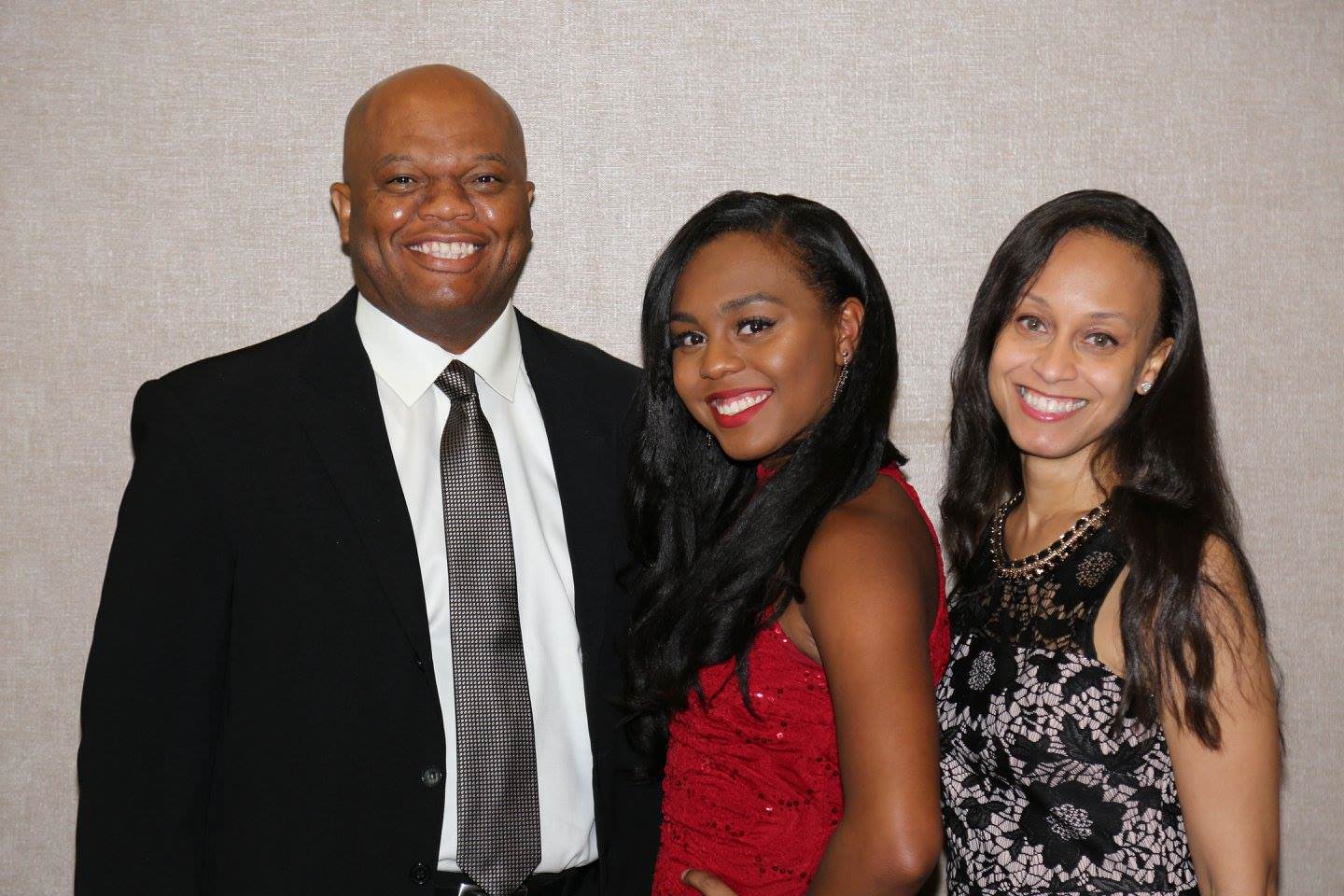Shanae Rhodes: Helping San Antonio’s Diabetic Community

 Shanae Rhodes, a student in our Nursing Science Ph.D. program, would like to focus her research on vulnerable populations and the effects of culture, stress, and resiliency on perceptions of health.
Shanae Rhodes, a student in our Nursing Science Ph.D. program, would like to focus her research on vulnerable populations and the effects of culture, stress, and resiliency on perceptions of health.
She is currently assisting in three different projects involving vulnerable populations and chronic illness or stress, including: African American caregivers of persons with dementia, coastal residents affected by Hurricane Harvey, and diabetes management outcomes in Mexican American adults. From the skills that she is learning, Rhodes hopes to assist in developing community-based interventions to promote health and wellness in San Antonio’s diabetic community.
According to the City of San Antonio’s Metropolitan Health District, in 2014, 14.2 percent of Bexar County adults had been diagnosed with diabetes (type 1 or type 2) which is higher than Texas (10.6 percent) and much higher than the national average (9.3 percent).
In one of the projects, Rhodes is investigating how cognitive impairments may influence diabetes management in Mexican Americans who have been diagnosed with Type II diabetes.

“I’ve met some people who understand the importance of changing their diet and activity in order to maintain healthy glucose levels. For them, something just clicked. They are no longer insulin dependent. When we check their blood glucose, we realize that they have been able to moderate their diabetes,” she said. “I want to use those people, those who get it…where it clicked, as models for those where it hasn’t quite yet clicked. I believe that the people who are living with the disease and maintaining wellness are the actual experts. We can utilize their knowledge in combination with our knowledge to develop more productive interventions.”
After meeting with many people in her personal and professional life, she has realized that there is a mindset of eventuality that also pervades the community.
“People think that just because their grandmother suffered from diabetes or their father died from it, that they are destined for the same demise. This idea of health is just not true. It doesn’t have to be,” she said.

She said that she was attracted to the Nursing Science Ph.D. program because she would be able to impact the community in a different way.
“My mission is to serve the under-resourced and overlooked. As a nurse researcher, I believe that I can empower people of color with diabetes to live a life of good health and well-being by restructuring the conditioning of the mindset.”
Rhodes’ story with diabetes is personal as her grandmother passed away with diabetic complications. But she said, it was the nurse in the room that made a profound impact on her life.
“It was the first time that I had ever experienced death of a close relative. My grandmother helped to raise me and my brother. The nurse in the room didn’t say a word, but I knew that she was there for us. I wanted to be that kind of person for others,” she said. “From that point, I researched more about nursing.”
During her sophomore year at University of Michigan, she found a job as an assistant to the child life specialists at Motts Children Hospital.
“I was able to see how nurses interacted with their patients. I was really drawn to how nurses actually took time to get to know the patients personally. They knew what the patients liked, what games they preferred, and their family stories. The nurses saw their patients as human beings, not as a room number or diagnosis,” she said. “They truly provided holistic care for the patient and the family. Being a nurse was not just a job, but it was a special calling. Some years later, the Lord revealed to me that He had given me the same calling.”
In 2015, she applied for the bachelor’s in nursing program at UT Health San Antonio after her daughter had graduated from high school.
“Coming back as an older student, I was a little nervous but everyone was so supportive and genuinely wanted us to succeed. I really credit the staff and faculty for helping me to be successful.”

After she finished her bachelor’s in nursing, she explains that her professors recommended her to think about the Ph.D. program.
“I didn’t see the researcher in me. I really love being a nurse and I love my patients, but research was intimidating. However, I spent two years seeking for the Lord’s direction. I knew that I was to continue being a nurse, but I felt as if there was something more. In my heart, I wanted to continue my grandmother’s legacy. She wasn’t a nurse, but she really took care of those that others rejected. Then it came to me. As a nurse researcher, I could do the same.”
Outside of school, she volunteers at different prisons and feeds the homeless through her church. She is also a member of the Christian Medical and Dental Association, Sigma Theta Tau, and recently joined the Committee on Scholarship at the School of Nursing.
In 2016, she received the Florence Nightingale Award from UT Health San Antonio and the DAISY Award in 2019 from Northeast Methodist Hospital for her service to her patients. She is also currently a Joe and Theresa Long Scholar.
After graduation, she would like to obtain her Master’s in Public Health and then complete a postdoctoral fellowship to improve her skills in community based participatory and translational research.
“I know that building my knowledge by learning from different perspectives will help me to better serve the community.”
 This article was written by Charlotte Anthony, marketing specialist at the Graduate School of Biomedical Sciences at UT Health San Antonio. This article is part of the “Meet The Researcher” series which showcases researchers at the Graduate School of Biomedical Sciences at University of Texas Health Science Center San Antonio.
This article was written by Charlotte Anthony, marketing specialist at the Graduate School of Biomedical Sciences at UT Health San Antonio. This article is part of the “Meet The Researcher” series which showcases researchers at the Graduate School of Biomedical Sciences at University of Texas Health Science Center San Antonio.
